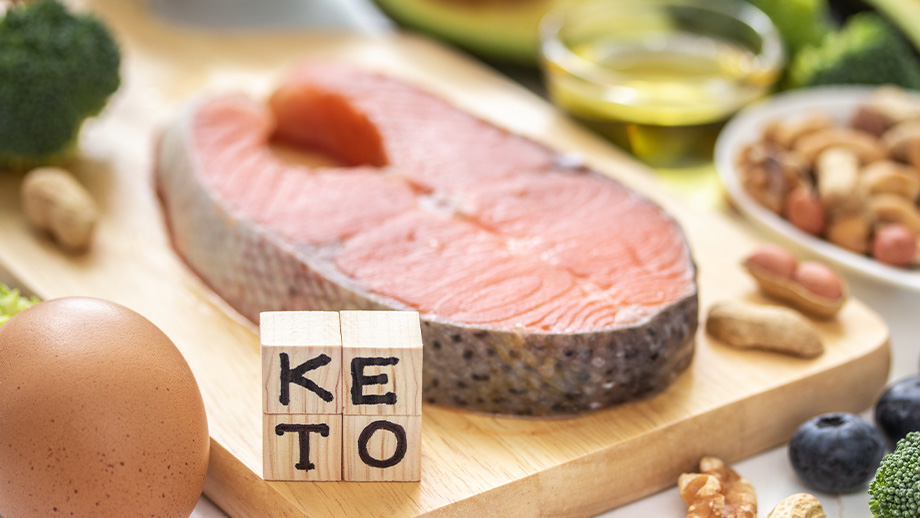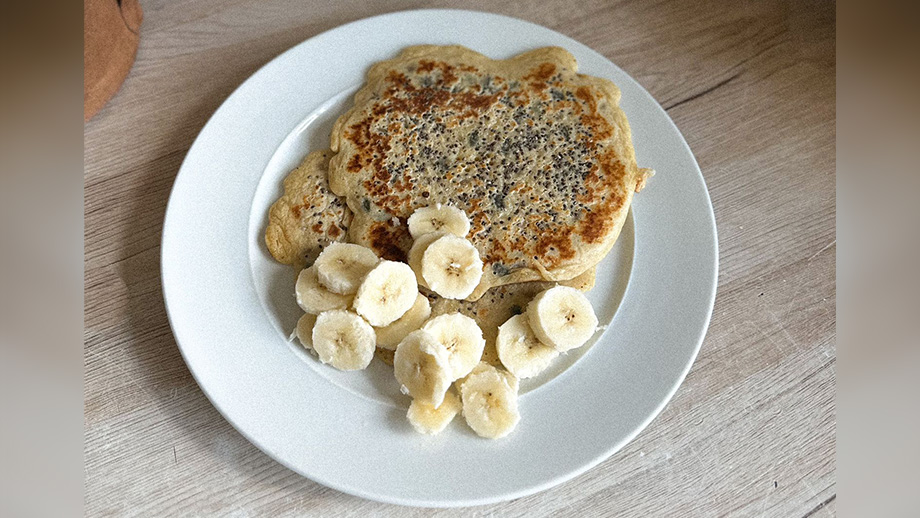It can feel overwhelming trying to find a good PCOS diet plan. You hear many contradictory statements online villainizing fruits, gluten, dairy, and other foods. Other people say the opposite.
With so many fad diets, nutritional influencers, and doctor recommendations, how do you know what to eat for your PCOS?
Well, we’re here to guide you on how to eat a sustainable and nutritious diet to help your hormonal and physical health while still enjoying food. We don’t believe in strict calorie restrictions and counting for everyone.
There’s no perfect PCOS plan for everyone because we all have different bodies, come from different countries and backgrounds, and have different nutritional needs. That’s why it’s best to review diet principles and your personal needs for a PCOS diet plan ideal for you.
So let’s dig in.
How Does Diet Affect PCOS?
We all know food provides the necessary nutrition and energy for our bodies to function properly. Certain foods contain essential vitamins and minerals for vital processes, such as the circulatory, immune, and endocrine systems, among others.
The endocrine system controls the flow and function of hormones throughout the body. Everything we eat can have beneficial or negative impacts on these systems. For example, eating sugary food can cause blood sugar to spike and impact insulin resistance.
However, certain foods can have positive hormonal effects. For example, cinnamon can help improve androgen levels and ovarian function for women with PCOS. Thus, the food we eat can have huge benefits or detriments to PCOS. Food is medicine, after all.
Can PCOS Be Reversed With Diet?
While PCOS doesn’t have a cure, you can start to reverse or slow the return of symptoms. And diet plays a significant role in improving those factors.
However, reversing this condition will likely take a lot more than diet alone. With the right balanced plan, including diet, exercise, supplementation, stress, and sleep management, you can see significant improvements in your PCOS.
However, a good diet focused on hormonal health can do wonders for your PCOS symptoms. Following a balanced plan, maximizing nutrient-rich foods, and minimizing others can put you on the right track.
What Foods Flare Up PCOS?

Certain Foods Cause Symptom Flare Ups
This doesn’t mean these foods will always cause a flare-up or that you must ditch them altogether. But we can follow certain health principles and minimize how much we consume.
Certain foods can cause flare-ups in specific symptoms. For example, eating fatty and sugary foods can spike your blood sugar and lead to fatigue.
Additionally, what may cause issues for one person may not have the same effects for another. Every body reacts differently.
Some foods that may impact your PCOS and hormonal health include saturated fats, refined sugars, processed snacks, and fast food.
Things like hamburgers, french fries, ice cream, chips, bacon, donuts, and sugary drinks have little nutritional value. These can cause high blood pressure, glucose spikes, weight gain, and fatigue.
However, women with PCOS may also experience food intolerances and find other food groups, such as dairy or gluten can cause issues. So let’s find out if these are actually bad for PCOS.
Is Gluten Bad for PCOS?
Scientists have not found a connection between gluten and PCOS. However, some individuals may experience gluten intolerance or celiac disease. This can cause bloating, fatigue, upset stomach, and diarrhea. It can also cause inflammation and nutrient malabsorption in the gut.
Thus, cutting gluten may work for some women with PCOS who experience an intolerance. But cutting gluten altogether won’t have any major effects on your PCOS for everyone.
Is Dairy Bad for PCOS?
Overall, dairy is not bad for PCOS specifically. However, it can have negative impacts on certain individuals. But milk and dairy products contain important nutrients such as vitamins B, B12, A, and D, and minerals including calcium, potassium, magnesium, and zinc. It also has high-quality protein.
However, the research can’t confirm if dairy negatively impacts women with PCOS, as the results vary. A review of multiple studies published by the National Library of Medicine explained the inconclusive evidence regarding dairy and PCOS.
Some studies showed that low-fat milk had a 4% decrease in developing type 2 diabetes, whereas full-fat milk increased this risk. But in pregnancy, it increased the risk of gestational diabetes by 95%. However, it also says that milk and dairy may benefit some people and not others due to many factors.
However, the scientists concluded that the high amounts of steroid hormones, growth factors, pesticides, and chemical substances in milk can negatively impact endocrine health. But other dairy products don’t have the same effect.
For example, yogurt had beneficial effects on glucose homeostasis, or blood sugar balance, lowering the risk of type 2 diabetes.
Fermented dairy products also positively influenced “intestinal microbiota and, thereby, on the insulin sensitivity of tissues and glucose tolerance.” This study showed it reduced the risk of type 2 diabetes by 19% among those who consumed yogurt twice a week versus those who had it less than once a month.
The insufficient and even contradictory evidence of dairy for PCOS and other risk factors only contributes to this being a personal choice. What may affect one person may not bother another. However, it seems that excessive consumption can lead to generally adverse effects. So moderation is key.
Is Caffeine Bad for PCOS?

Caffeine and PCOS
Many people make bold statements that caffeine will wreak havoc on your hormones, contribute to infertility and miscarriage, and other scary claims. However, the evidence is weak, and the research is inconclusive, especially specifically for women with PCOS.
However, caffeine consumption can have some side effects, including heartburn, upset stomach, and high blood pressure. It can also work as a diuretic to make you urinate more and interfere with calcium absorption.
If you drink too much caffeine, you can also experience restlessness and shakiness, insomnia, headaches, dizziness, dehydration, and anxiety.
In a small study, caffeine worsened insulin sensitivity by 35%, and the effects persisted for a week. Caffeine can also raise the stress hormone cortisol.
However, adding a stimulant to your diet can impact your sleep and dependency on caffeine. So having a cup of coffee now and then may not cause any problems. But having several cups a day won’t do you any good and can impact your energy and sleep.
Is There a Specific Diet for PCOS I Should Follow?
There is no one-size-fits-all PCOS super diet. Women from all over the world have very different diets, symptoms, and nutritional needs. So recommending a specific diet for everyone with PCOS won’t work.
However, science has shown that certain eating habits and choices have proven benefits for PCOS. We’ll talk about the most common ones.
But remember that these will vary in effectiveness. Some may feel unrealistic or unsustainable for you. But you can determine if some of these guidelines would work to help improve your PCOS. We’ll also provide some general, simple tips later on.
Let’s look at some common diets and how they work for PCOS.
Low GI
The glycemic index (GI) measures how quickly a carbohydrate can raise your blood sugar and by how much. Your body will break down carbs with a low glycemic index slower, allowing for a more steady release of sugar.
High GI foods such as soda and sweets will rapidly spike blood sugar and cause a crash. A low GI diet will include foods such as legumes, beans, vegetables, fruits, and whole grains.
According to a review of nutrition strategy in PCOS, “Low GI (LGI) diets decreased homeostatic model assessment for insulin resistance, fasting insulin, total and low-density lipoprotein (LDL) cholesterol, triglycerides, waist circumference, and total testosterone.”
A low GI diet can greatly benefit many markers of PCOS, from weight to insulin resistance and high testosterone.
Intermittent fasting
You’ll find many different approaches to intermittent fasting. However, the most common one means you only have an 8-hour window to eat for the day, and you fast the other 16 hours.
This diet only restricts when you eat and not what or how much. Thus, it can have variable effects on people. It can also have some side effects, including hunger, nausea, fatigue, headaches, and insomnia.
One study on women with PCOS concluded that “The diet of TRF [time-restricted fasting] may be beneficial to anovulatory PCOS on weight loss, especially reducing body fat, improving menstruation, hyperandrogenemia, insulin resistance, and chronic inflammation.” However, the study was quite small and did pose some limitations.
According to John Hopkins, other benefits of intermittent fasting may include heart health, endurance, insulin resistance, and obesity.
Again, this diet may not work for everyone, especially people who need to take medications with food, who have type 1 diabetes, pregnant women, and those with eating disorders.
Keto

Is Keto Good For PCOS?
The ketogenic diet relies on eating high amounts of fat and very low amounts of carbs. The liver produces ketone bodies from stored fat that your body can use for fuel. However, it is a difficult and unsustainable type of diet. It requires eating large amounts of saturated fats and minimal protein and carbs.
Keto foods include cheeses, avocados, fish and seafood, meat and poultry, eggs, nuts and seeds, berries, and low-carb veggies. Foods to avoid include most grains, carbs, fruits, milk, legumes, and beverages.
It is mostly recommended to reduce epileptic seizures in children. However, it can have some benefits for PCOS as well.
According to the same PCOS nutritional review, “The ketogenic diet (KD) improves the menstrual cycle, reducing blood glucose and body weight, improving liver function, and treating fatty liver in women with PCOS and liver dysfunction who were obese.”
It also decreased body weight, BMI, cholesterol, and blood insulin levels.
“The LH/FSH ratio, LH total and free testosterone, and DHEAS blood levels were also significantly reduced. Estradiol, progesterone, and SHBG increased.”
However, while these results may seem promising, a ketogenic diet can have several risks and provide only short-term results. According to Harvard Health, the keto diet can lead to nutrient deficiencies, liver and kidney problems, mood swings, brain fog, and constipation.
Mediterranean
The Mediterranean diet focuses on plant-based foods, healthy fats, and lean meats. It will include legumes, nuts, beans, whole grains, vegetables, fruit, and extra virgin olive oil. It also has little to no meat, but it can include poultry and fish in small amounts.
This diet’s benefits include increased fiber, antioxidants, omega-3 fatty acids, and limited carbohydrates, sugars, and sodium. It can lead to a decrease in cholesterol, inflammation, and blood pressure.
Another benefit is that the Mediterranean diet focuses more on eating healthy foods and not on harsh calorie reductions or strict formulas. Thus, you can easily modify it to your likes and needs. Other similar diet plans include anti-inflammatory and DASH diets, which follow similar principles.
One study on 111 women with PCOS found that the Mediterranean diet led to reduced “insulin resistance, dysglycemia, hyperandrogenism and obesity, also causing satiety and weight loss in women.”
It also positively affected ovarian health by regulating follicle-stimulating hormone (FSH) and reducing the number of ovarian follicles.
So it can help with blood sugar, high androgens, cravings, and ovulation. These all impact many symptoms of PCOS.
Another study further supports that it “could support a therapeutic role of individual foods and nutrients of the Mediterranean diet in PCOS, helping to reduce the inflammatory condition that paves the way for insulin resistance and hyperandrogenemia.”
The Best Simple PCOS Diet Tips to Improve Your Symptoms
The best diet tips are ones that are realistic and sustainable for you. You don’t need to form a bad relationship with food for no reason.
Food should nourish us. There are no bad or good foods because food doesn’t have moral value. Instead, we can choose to eat things that benefit our bodies and those that won’t.
But all food can have its place in a balanced PCOS diet. You can still have tasty and enjoyable meals that work for your hormonal health and not against it.
So what are some guidelines you can follow for healthy PCOS diet tips? Let’s explore a few.
Maximize and Minimize
You may feel very excluded when you go out to eat with friends or to a birthday party and can’t enjoy the food and cake because of your PCOS goals. But we’re here to tell you that it’s all about balance.
You don’t have to cut all the foods you enjoy completely. You can have a little cake and enjoy it too. But we want to minimize unhealthy foods. These will be rare treats and occasional indulgences.
However, you also need to maximize healthy options. This can mean making simple swaps like white bread for whole wheat or white rice for brown rice. Or it can look like maximizing amounts of fruits, vegetables, lean meats, and healthy fats.
Eat for Your Hormones

Eating For PCOS
Another great way to improve your PCOS through diet is by eating foods that your hormones will love. Many foods have anti-androgenic effects that can help reduce specific PCOS symptoms. Others can help reduce insulin resistance and blood sugar.
For example, blueberries are great for blood sugar levels and fighting oxidative stress that leads to inflammation, weight gain, and insulin resistance. They also have tons of fiber, minerals, and vitamins. And turmeric lowers inflammation, BMI, and insulin resistance.
You can find many foods that will help your hormones and improve PCOS symptoms and add them to your diet.
Get Enough Vegetables
Eating vegetables with a low glycemic index will help you manage your blood sugar, nutrient deficiencies, provide minerals and vitamins, and help your hormones.
These include non-starchy vegetables such as leafy greens, tomatoes, mushrooms, peppers, broccoli, cauliflower, snow peas, celery, and many others.
According to the Harvard School of Public Health, “A diet rich in vegetables and fruits can lower blood pressure, reduce the risk of heart disease and stroke, prevent some types of cancer, lower risk of eye and digestive problems, and have a positive effect upon blood sugar, which can help keep appetite in check.”
If you dislike many of these vegetables, you can try adding them into smoothies or omelets. Or you can pair them with other foods you enjoy. You can make a salad and add chicken breast, fruits, nuts, or other things to add flavor, texture, and variety.
Pair Sugar With Protein
Protein has many important roles in the body. It is the building block for hormones and neurotransmitters and supports energy metabolism.
According to the Sugar Nutrition Resource Center, “Combining carbohydrates and protein can promote a more gradual release of glucose into the blood. Protein can also slow down stomach emptying and the rate at which carbohydrates are digested and absorbed. It can stimulate insulin secretion, which helps to lower blood glucose levels.”
Eating sugar in moderation is key. But the best way to eat sugar is to pair it with protein. Protein can help break down and slow the release of sugar into the bloodstream, so it has a less significant spike in blood sugar. This means improvements in insulin resistance and PCOS.
Pair Sugar With Fiber

Fiber is Great For PCOS
Fiber works in a similar way. And pairing sugar with fiber can help lower its effects on your body and blood sugar.
According to the Centers for Disease Control and Prevention, soluble fiber “dissolves in water and forms a gel-like substance in your stomach, slowing down digestion. It helps control your blood sugar and cholesterol, which can help prevent or manage diabetes complications.” And insoluble fiber can improve insulin sensitivity and bowel health.
A glass of processed orange juice will have a higher spike in blood sugar because it removes the fiber from the skin and fruit. Eating a whole apple or orange will also help with feelings of fullness more than a glass of juice due to the fiber.
Sources of soluble fiber include “apples, bananas, oats, peas, black beans, lima beans, Brussels sprouts, and avocados.” And insoluble fiber sources include “wheat flour, bran, nuts, seeds, and the skins of many fruits and vegetables.”
You don’t have to cut out the sweets you enjoy entirely. But eating them in the right way can have great benefits.
First, only eat sugary foods in moderation, perhaps for a birthday or an occasional date night. And only choose to eat a small portion. Try to pair it with fiber or protein. For example, you can have a small scoop of ice cream with a serving of nuts.
But the goal is to choose healthier sugar options. Limit the amount of sugary drinks, candies, sweets, and unhealthy carbs you consume. And you can find easy swaps. If you have a chocolate craving, try eating some dark chocolate instead. Or if you need something sweet after a meal, eat fruit to satisfy that feeling.
Follow Guidelines, Not Restrictions, for Your PCOS Diet
PCOS is a long-term condition. Thus, we need to implement long-term solutions. Doing fad diets may produce good results, but as soon as you stop, it’ll likely all come back. Additionally, certain diets are challenging, stressful to follow, and can have some side effects.
According to PCOS nutrition strategies, “strict caloric restrictions do not produce the expected long-term effects.”
The goal is not to starve yourself but nourish yourself. Sustainable diet changes and healthy choices can lead to more lasting results. And while it may take longer to see the outcomes, those will likely be better than quick fixes.
Take a look at this free PCOS meal plan. It includes nutrient-rich and hormone-friendly ingredients and simple and tasty meals that don’t include crazy ingredients and strict calorie counting.
You can find help for many of your PCOS symptoms when you eat for your hormones and follow simple nutrition tips. Let us know what questions you have and what diet tips have helped your PCOS.










